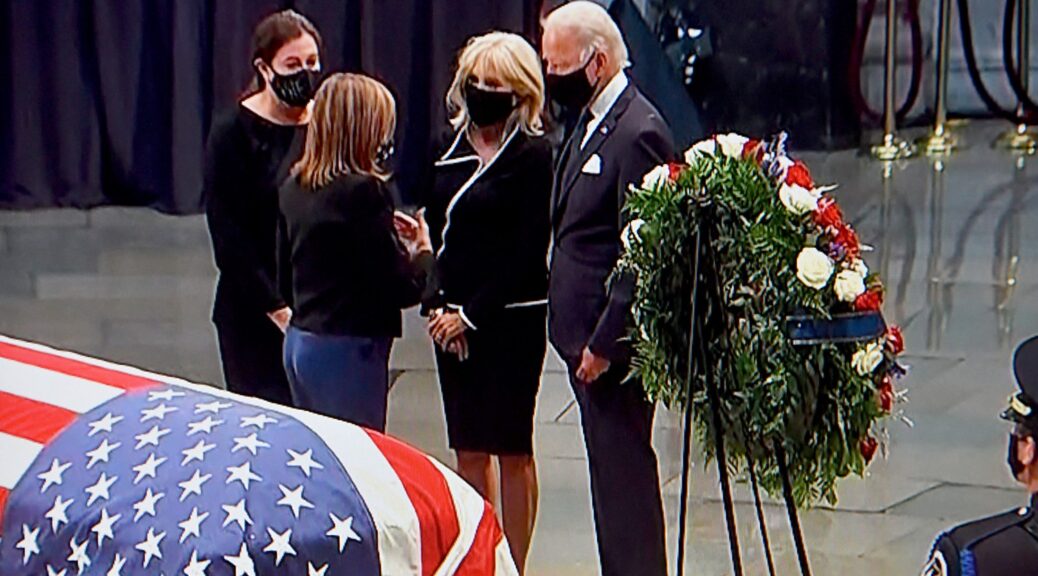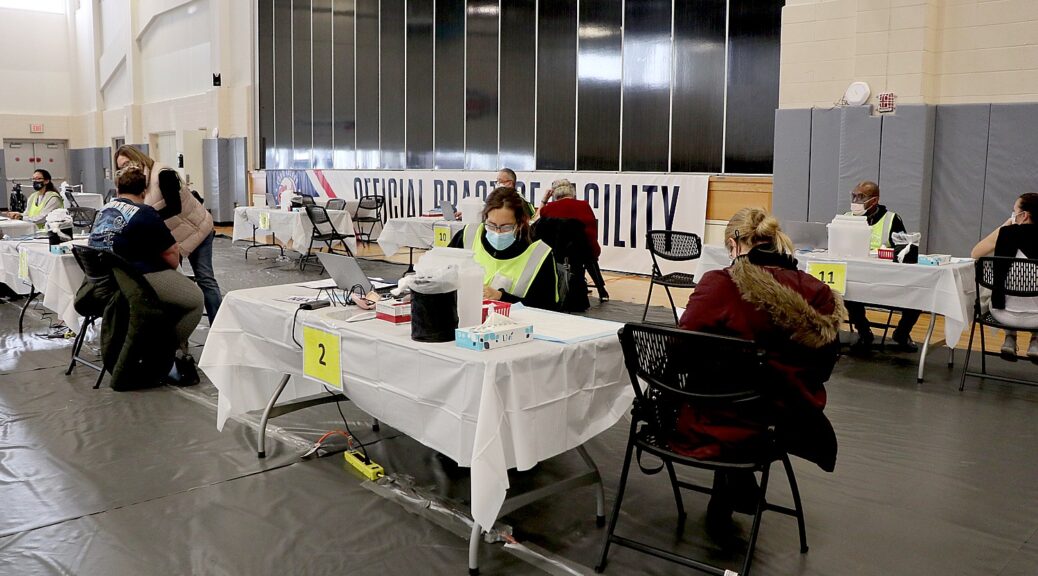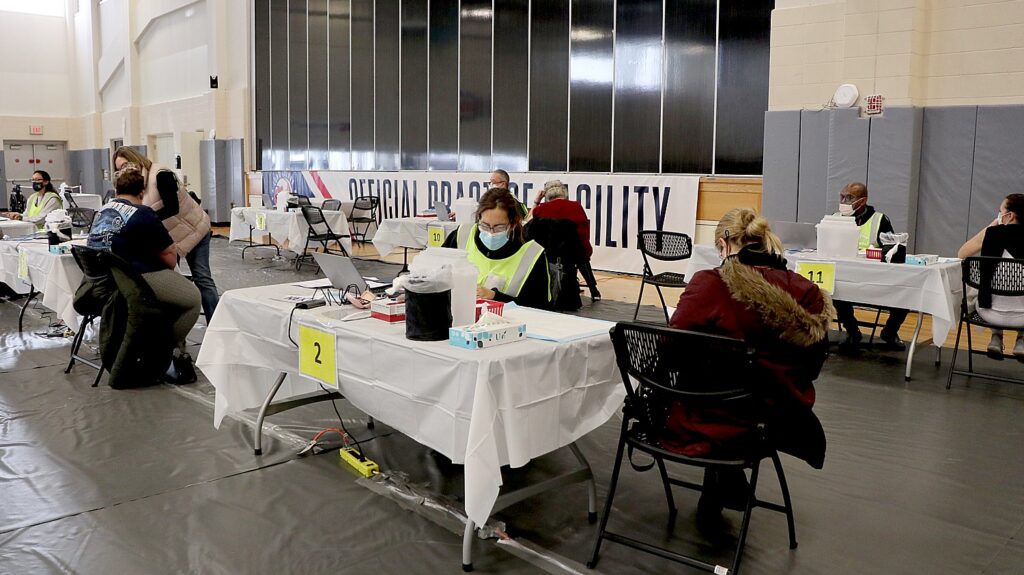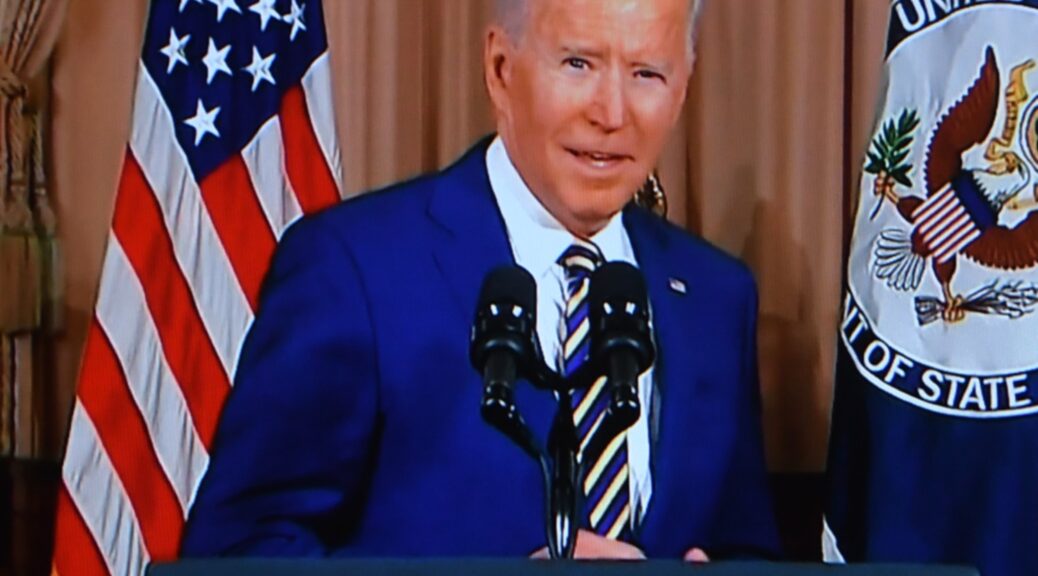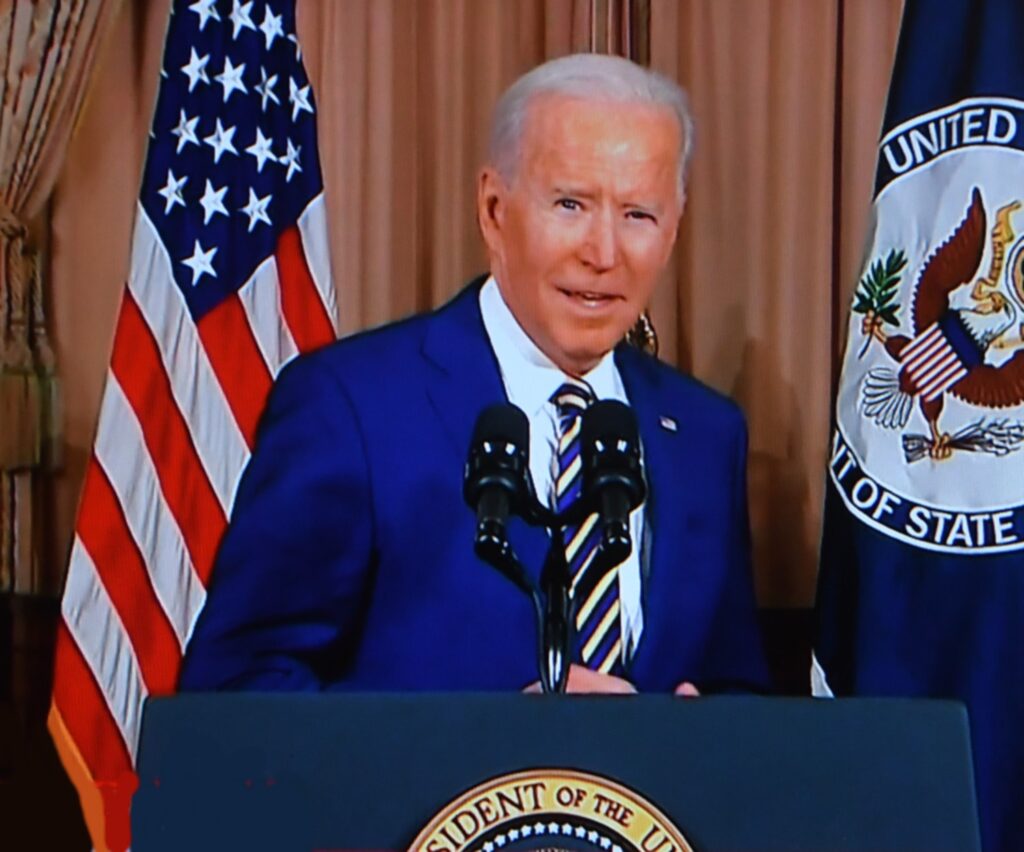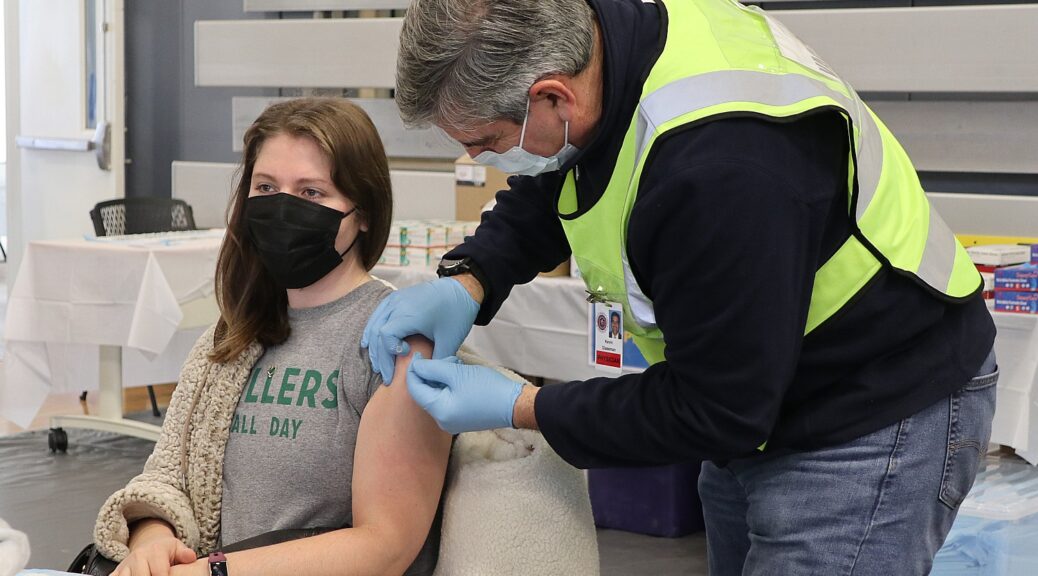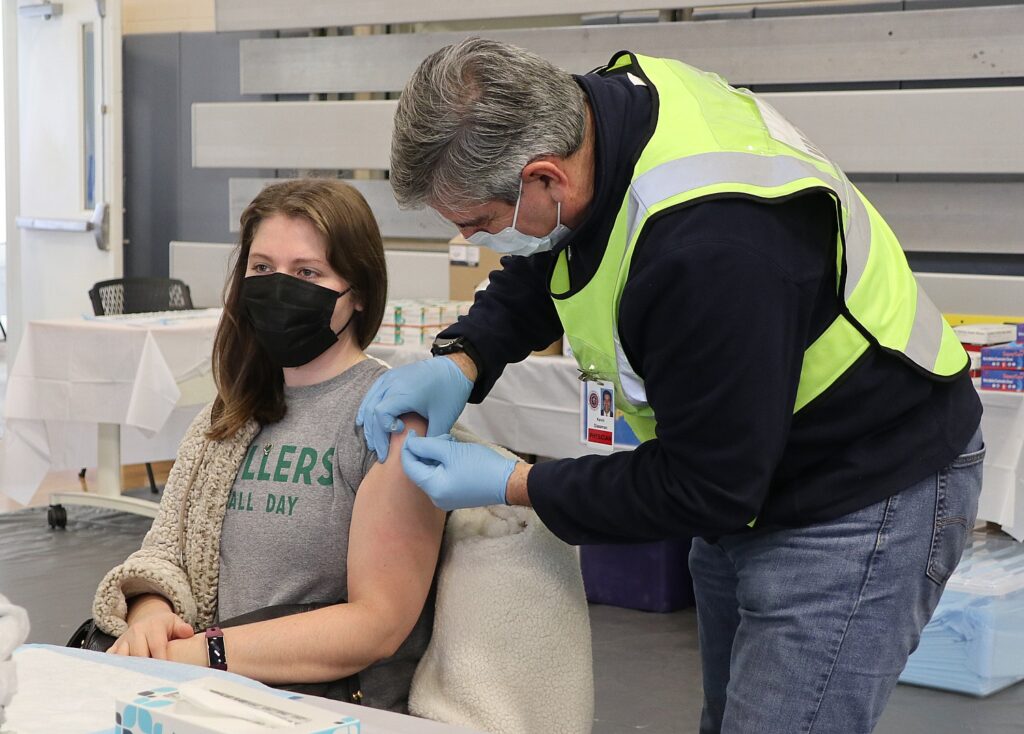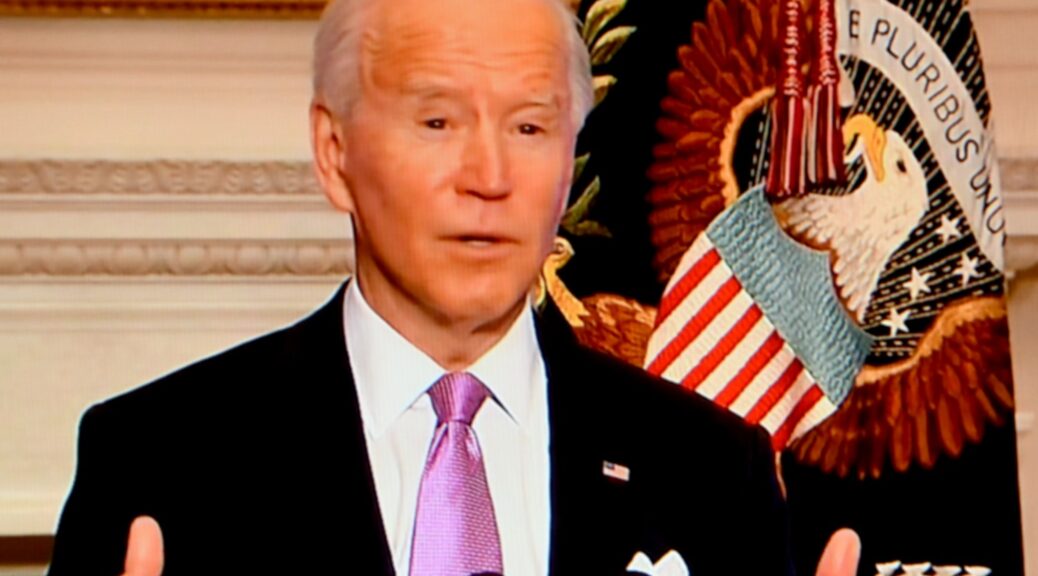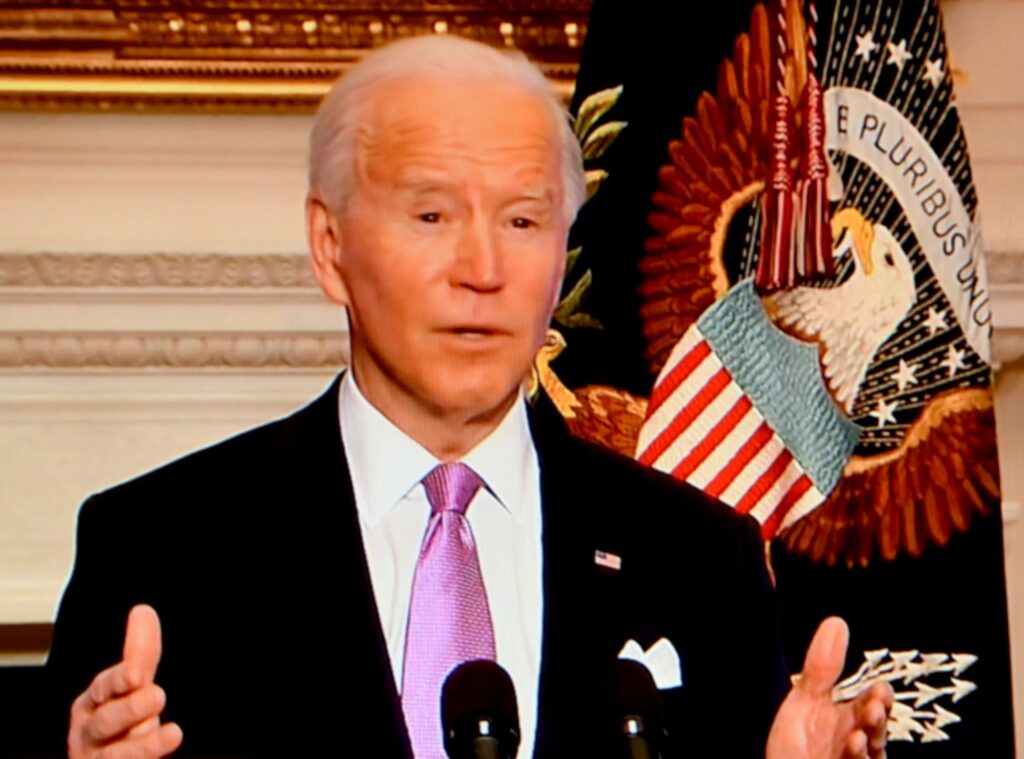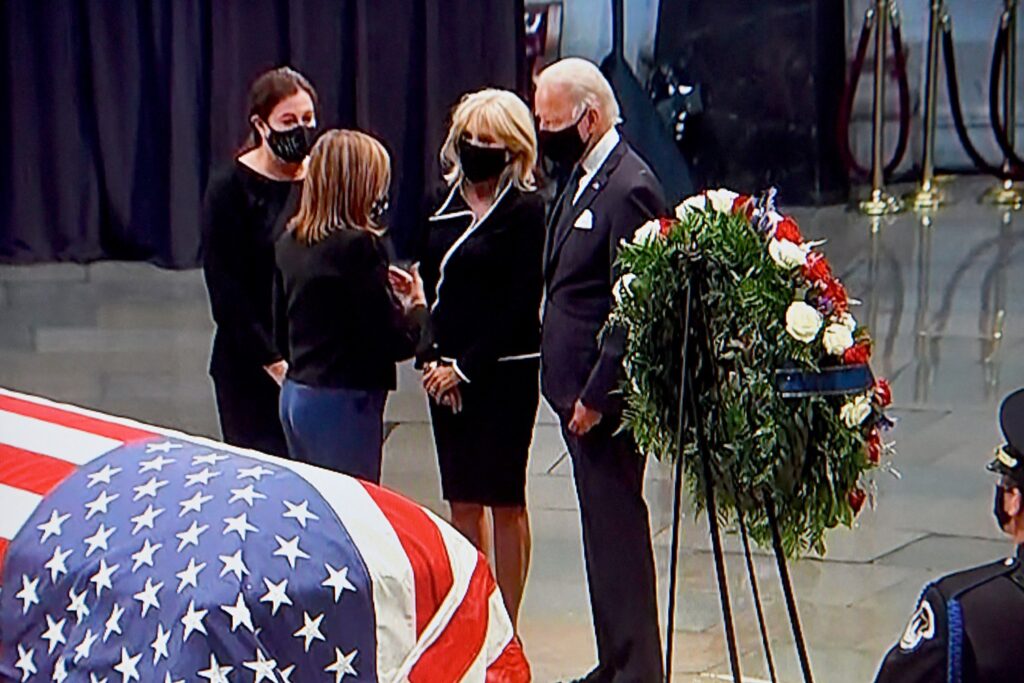
On a day marking the anniversary of Bloody Sunday in Selma, an event that so outraged Americans it led ultimately to the passage of the Voting Rights Act of 1965, President Joe Biden addressed the unity breakfast named after Dr. and Mrs. King and announced that he had signed an Executive Order “to make it easier for eligible voters to register to vote and improve access to voting.”
President Biden declared, “Every eligible voter should be able to vote and have that vote counted. If you have the best ideas, you have nothing to hide. Let the people vote.” Here is the text of his remarks and the details of his Executive Order:
I know this is the first commemoration of Bloody Sunday without Reverend C.T. Vivian, Reverend Joseph Lowery, and Congressman John Lewis. Preachers of the social gospel. Architects of the ‘Beloved Community,’ they built not only with words but with action. And reminders that in our lifetime, for Black Americans, the fundamental right to vote has been denied by white supremacy hiding both behind white hoods and in plain sight in state houses and courtrooms.
Yet those torches and burning crosses, the batons, tear gas, fire hoses, attack dogs, and unfair laws and trials could not stop progress. The blood of John Lewis and hundreds of other brave and righteous souls that was spilled in Selma, on this Sunday in 1965 sanctified a noble struggle.
And when the country saw those images that night, America was forced to confront the denial of democracy — the fierce urgency of justice.
Congress passed the Voting Rights Act a few months later, and President Johnson signed it into law.
The legacy of the march in Selma is that while nothing can stop a free people from exercising their most sacred power as a citizen, there are those who will do everything they can to take that power away.
The Voting Rights Act began to dismantle barriers to voting and to make our elections more fair, free, and representative.
I was always proud to lead the efforts to reauthorize it over the years as a U.S. Senator in the Judiciary Committee. But at the same time, Republicans at every level have chipped away at it.
Then in 2013, the U.S. Supreme Court gutted the Voting Rights Act, holding that times have changed and blatant voter discrimination was rare, contrary to the assault that was taking place on the ground. The late Justice Ginsburg wrote that the decision was like “throwing away your umbrella in a rainstorm.” Today, we have a hail storm, not a rain storm.
And in 2020, our very democracy on the line, even in the midst of a pandemic, more Americans voted than ever before. Multiple recounts in states and decisions in more than 60 courts – from judges appointed by my predecessor, including at the Supreme Court – upheld the integrity of this historic election.
Yet instead of celebrating this powerful demonstration of voting – we have seen an unprecedented insurrection in our Capitol and a brutal attack on our democracy on January 6th. A never before seen effort to ignore, undermine, and undo the will of the people.
And to think that it’s been followed by an all-out assault on the right to vote in state legislatures all across the country happening right now. During the current legislative session, elected officials in 43 states have already introduced more than 250 bills to make it harder for Americans to vote. We cannot let them succeed.
Last week, the House of Representatives passed H.R. 1, the For the People Act of 2021. This is a landmark piece of legislation that is urgently needed to protect the right to vote, the integrity of our elections, and to repair and strengthen our democracy. I hope the Senate does its work so that I can sign it into law.
I also urge Congress to fully restore the Voting Rights Act, named in John Lewis’ honor.
Today, on the anniversary of Bloody Sunday, I am signing an executive order to make it easier for eligible voters to register to vote and improve access to voting. Every eligible voter should be able to vote and have that vote counted. If you have the best ideas, you have nothing to hide. Let the people vote.
I’ll close with this – a few days before he passed, Jill and I spoke with John, Congressman Lewis.
But instead of answering our concerns about him, “how are you doing, John,” he asked us to stay focused on the work left undone to heal and to unite this nation around what it means to be an American.
That’s the God’s truth. John wouldn’t talk about his pending death or his concerns. He said we just got to get this done.
That we are all created equal. That we all deserve to be treated equally.
On this day of reflection, please, let’s stay focused on the work ahead.
Let’s remember all those who came before us as a bridge to our history so we do not forget its pain, and as a bridge to our future so we never lose our hope.
May God bless their memory. May God bless you all.
FACT SHEET:
President Biden to Sign Executive Order to Promote Voting Access
On this day in 1965, state troopers beat and tear-gassed hundreds of peaceful protestors crossing the Edmund Pettus Bridge in Selma, Alabama. The protestors were seeking justice and to ensure their right to vote would not be denied. At the head of the march were former Congressman John Lewis and Rev. Hosea Williams. As the troopers advanced with clubs raised, the group knelt in prayer. The images of protestors, bloody and bruised, flashing on television screens across the nation spurred Congress to pass, and President Johnson to sign into law, the 1965 Voting Rights Act. Congressman Lewis’ fight to protect and expand the vote did not end that day in Selma. He carried the mission to our nation’s Capital and remained a vigilant protector of our right to vote, knowing all too well the burdens borne to guarantee it.
Today, to mark the 56th anniversary of Selma with actions and not just words, President Biden will sign an Executive Order to promote voting access and allow all eligible Americans to participate in our democracy. This Executive Order will leverage the resources of the federal government to increase access to voter registration services and information about voting.
As the President has said, democracy doesn’t happen by accident. We have to defend, strengthen, and renew it. Free and fair elections that reflect the will of the American people must be protected and defended. Too many Americans face significant obstacles to exercising their fundamental right to vote. For generations, Black voters and other voters of color have faced discriminatory policies that suppress their vote. Voters of color are more likely to face long lines at the polls and are disproportionately burdened by voter identification laws and limited opportunities to vote by mail. Native Americans likewise face limited opportunities to vote by mail and frequently lack sufficient polling places and voter registration opportunities near their homes. Limited access to language assistance is an obstacle for many voters. People with disabilities face longstanding barriers in exercising their right to vote, especially when it comes to legally required accommodations to vote privately and independently. Members of our military serving overseas, as well as other American citizens living abroad, also face unnecessary challenges to exercising their right to vote.
Today’s Executive Order is an initial step in this Administration’s efforts to protect the right to vote and ensure all eligible citizens can freely participate in the electoral process. The President is committed to working with Congress to restore the Voting Rights Act and pass H.R. 1, the For the People Act, which includes bold reforms to make it more equitable and accessible for all Americans to exercise their fundamental right to vote.
Today’s Executive Order will:
Direct federal agencies to expand access to voter registration and election information. The executive order will direct the head of each federal agency to submit to the Assistant to the President for Domestic Policy a strategic plan outlining ways their agency can promote voter registration and participation within 200 days. These strategic plans could include actions such as:
- Leveraging agencies’ existing websites and social media to provide information about how to register to vote
- Distributing voter registration and vote-by-mail ballot applications in the course of regular services
- Considering whether any identity documents issued by the agency can be issued in a form that satisfies state voter identification laws
And, the Federal Chief Information Officer of the United States will coordinate across federal agencies to improve or modernize federal websites and digital services that provide election and voting information to the American people, including ensuring that federal websites are accessible to individuals with disabilities and people with limited English proficiency.
Direct federal agencies to assist states under the National Voter Registration Act. Today’s Executive Order reaffirms the intent of the National Voter Registration Act (NVRA) of 1993 to have federal agencies assist with voter registration efforts. Since the NVRA was enacted, state government agencies, like a department of motor vehicles, have helped register hundreds of millions of voters. Unlike state agencies, however, federal agencies can only become voter registration agencies under the NVRA at a state’s request. Federal agencies providing direct services to underserved communities represent a unique opportunity to provide access to voter registration services. Under today’s action, the head of each federal agency will evaluate where and how the federal agency provides services that directly engage with the public, and to the greatest extent possible, formally notify states in which it provides services that it would agree to designation as a voter registration agency. If requested by a state to be designated as a voter registration agency, the federal agency shall to the greatest extent possible agree to such designation.
Improve and modernize Vote.gov. The Executive Order will direct the General Services Administration (GSA) to submit to the Assistant to the President for Domestic Policy a strategic plan outlining steps to modernize and improve the user experience of the federal government’s premier source of voting-related information, Vote.gov, including the accessibility of the website within 200 days. The order requires GSA to seek the input of affected stakeholders, including election administrators, civil rights and disability rights activists, Tribal Nations, and nonprofit groups that study best practices for using technology to promote civic engagement.
Increase federal employees’ access to voting. The Executive Order will direct the Director of the Office of Personnel Management to work with the head of federal agencies to provide recommendations to the President regarding leave for federal employees to vote or to volunteer as nonpartisan poll workers, ensuring that the federal government serves as a model to other employers.
Analyze barriers to voting for people with disabilities. The Executive Order will direct the National Institute of Standards and Technology (NIST) within the Department of Commerce to evaluate and publish recommendations on the steps needed to ensure that the online Federal Voter Registration Form is accessible to people with disabilities within 200 days. The order directs NIST—in consultation with the Department of Justice, the Election Assistance Commission, and other agencies—to analyze barriers to private and independent voting for people with disabilities, including access to voter registration, voting technology, voting by mail, polling locations, and poll worker training.
Increase voting access for active duty military and other overseas voters. The executive order will direct the Secretary of Defense within 200 days to establish procedures to annually offer each member of the Armed Forces on active duty the opportunity to register to vote in federal elections, update voter registration, or request an absentee ballot. Additionally, the Secretary of Defense—in coordination with the Department of State, the Military Postal Service Agency and United States Postal Service—is required to submit a strategic plan for an end-to-end ballot tracking system for overseas ballots. And, the head of each federal agency with overseas employees is directed to designate a point of contact to coordinate with the Federal Voting Assistance Program (FVAP) and promote voter registration and voting services available to these employees.
Provide voting access and education to citizens in federal custody. The order will direct the Attorney General to establish procedures to provide educational materials related to voter registration and voting, and to the extent practicable, to facilitate voter registration, for all eligible individuals in the custody of the Federal Bureau of Prisons. It also directs the Attorney General to coordinate with the Probation and Pretrial Services Office to develop similar procedures for eligible individuals under its supervision. The Executive Order also directs the Attorney General to establish procedures to ensure the U.S. Marshals Service includes language in jail contracts to provide eligible individuals educational materials related to voter registration and voting, and to facilitate voting by mail, to the extent practicable and appropriate. And, it directs the Attorney General to take steps to support formerly incarcerated individuals in obtaining a means of identification that satisfies state voter identification laws.
Establish a Native American voting rights steering group. The order will establish an interagency steering group on Native American voting rights to be coordinated by the Domestic Policy Council. The steering group will include, at a minimum, the Attorney General, the Secretary of the Interior, the Secretary of Agriculture, the Secretary of Health and Human Services, the Secretary of Labor, and the Secretary of Veterans Affairs or their designees. The steering group will study best practices, in consultation with Tribal Nations, for protecting voting rights of Native Americans and will produce a report within one year of the date of the order outlining recommendations for increasing voter outreach, education, registration, and turnout in Native American communities.

